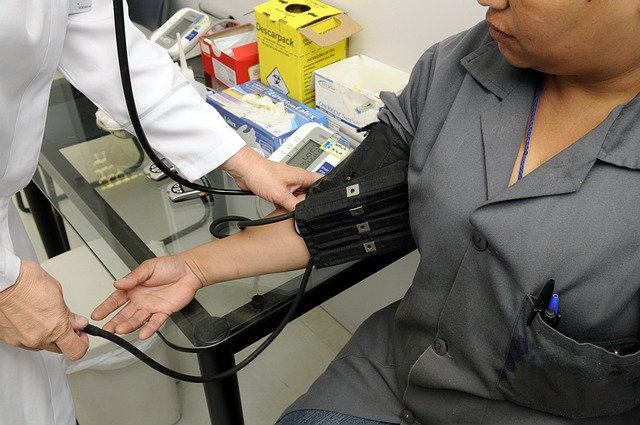Are You Missing These Signs of Hidden Hypothyroidism?
Are you feeling off but can’t quite put your finger on it? Hidden hypothyroidism symptoms often creep in quietly, causing subtle changes you might brush aside. Recognizing these overlooked signs is crucial for an early hypothyroidism diagnosis and ensuring your thyroid health stays on the right track. Let’s uncover what you need to know.

What are the subtle physical changes of hypothyroidism?
Hypothyroidism can manifest through various physical changes that are easy to miss or attribute to other factors. One of the most common yet overlooked signs is unexplained weight gain, despite maintaining the same diet and exercise routine. You might also notice dry, brittle hair and nails, as well as skin that feels rough or scaly. Another subtle indicator is increased sensitivity to cold temperatures, where you find yourself reaching for a sweater when others are comfortable. Additionally, some people experience mild swelling in the neck area, which could indicate an enlarged thyroid gland.
How do emotional and cognitive clues point to thyroid issues?
The impact of hypothyroidism extends beyond physical symptoms, affecting your emotional well-being and cognitive function. You might experience persistent fatigue, feeling tired even after a full night’s sleep. Mood changes, such as unexplained depression or anxiety, can also be linked to thyroid dysfunction. Cognitive issues like brain fog, difficulty concentrating, or memory problems are often overlooked signs of hypothyroidism. If you find yourself struggling to keep up with tasks that were once easy or forgetting simple things, it could be your thyroid sending a signal.
What causes an underactive thyroid?
Understanding the root causes of hypothyroidism is crucial for proper diagnosis and treatment. The most common cause is an autoimmune condition called Hashimoto’s thyroiditis, where the immune system mistakenly attacks the thyroid gland. Other factors can include iodine deficiency, certain medications, and radiation therapy to the neck area. In some cases, pregnancy can trigger thyroid issues, leading to postpartum thyroiditis. Genetic factors may also play a role, as hypothyroidism can run in families. Identifying the underlying cause is essential for tailoring an effective treatment plan.
How can you design the right thyroid diet?
Nutrition plays a significant role in managing hypothyroidism. A thyroid-friendly diet focuses on supporting overall thyroid function and addressing potential nutrient deficiencies. Include iodine-rich foods like seaweed and fish, but be cautious not to overdo it, as excessive iodine can worsen thyroid problems. Selenium-rich foods such as Brazil nuts and sardines can support thyroid hormone production. Avoid consuming large amounts of raw cruciferous vegetables, as they can interfere with thyroid function when eaten in excess. Balance your diet with lean proteins, healthy fats, and complex carbohydrates to support overall health and manage weight, which is often a challenge with hypothyroidism.
What are the latest advancements in hypothyroidism treatment?
Recent years have seen significant progress in the treatment of hypothyroidism. While levothyroxine remains the standard treatment, there’s growing interest in combination therapies that include both T4 and T3 hormones to more closely mimic natural thyroid function. Personalized medicine approaches are gaining traction, with doctors considering individual genetic factors to optimize treatment. Lifestyle interventions, including stress management techniques and targeted exercise programs, are increasingly recognized as important components of comprehensive thyroid care. Additionally, ongoing research into thyroid stem cell therapy shows promise for future treatment options.
How is hypothyroidism diagnosed and monitored?
Diagnosing hypothyroidism involves a combination of clinical evaluation and blood tests. The primary test measures thyroid-stimulating hormone (TSH) levels, with elevated TSH indicating an underactive thyroid. Additional tests may include free T4 and T3 levels to provide a complete picture of thyroid function. Antibody tests can help identify autoimmune thyroid conditions. Once diagnosed, regular monitoring is crucial to ensure optimal thyroid hormone levels and adjust treatment as needed. Some healthcare providers are now using more comprehensive thyroid panels and considering symptom improvement alongside lab results to fine-tune treatment plans.
Hypothyroidism is a complex condition that requires attention to subtle signs and symptoms for early detection and effective management. By understanding the various ways it can affect your body and mind, you can take proactive steps towards maintaining your thyroid health. Remember, if you suspect you might have an underactive thyroid, consult with a healthcare professional for proper evaluation and personalized treatment options.
This article is for informational purposes only and should not be considered medical advice. Please consult a qualified healthcare professional for personalized guidance and treatment.




